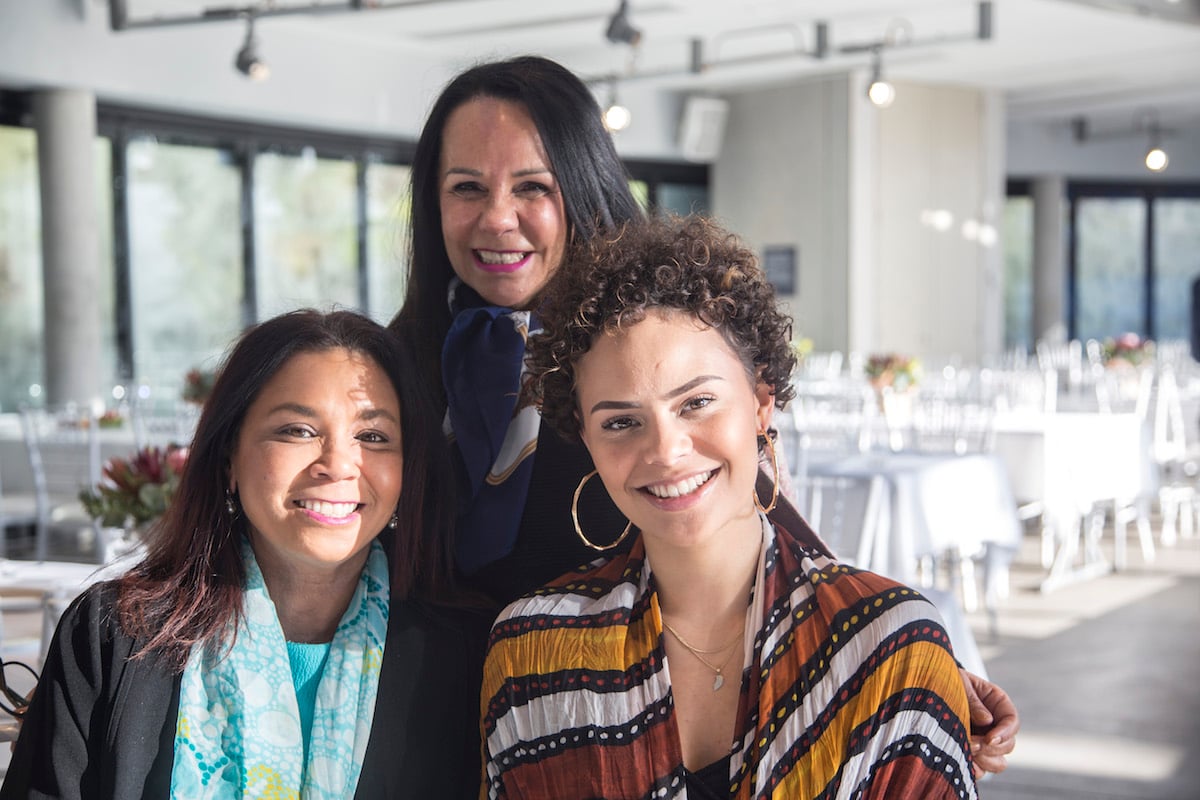How to empower Indigenous workers in your organisation

At the NAIDOC Corporate Breakfast held in Sydney, Australia’s Royal Botanic Garden on 10 July, Indigenous Australian speakers discussed this year’s NAIDOC Week theme – Because of her we can – and suggested strategies companies could implement to better support Indigenous workers.
The event’s MC was comedian Sean Choolburra and its panellists included: Linda Burney, the first Aboriginal woman to serve in the House of Representatives and the first to serve in the New South Wales parliament; writer Steven Oliver; Indigenous model Lala Bayle; former professional rugby league player Beau Champion; and Terri Janke, the founder of law firm Terri Janke and Company.
When asked who came to mind when they first heard of this year’s NAIDOC Week theme, most of the speakers spoke of their mothers or grandmothers as the people who helped shaped them into who they are today.
For Linda, it wasn’t just one specific woman. "It’s the women who will never make the 7 o’clock news," she told attendees. "The women whose names will never be in the newspaper.
"The Aboriginal women who have kept family and community safe, and culture strong over millennia under the most difficult of circumstances.
"We know that in New South Wales the majority of children stolen were young women. It was social engineering – to breed out the black. And they’re the women I thought of when I heard of this theme."

Empowering Indigenous Australians in the workplace
When asked how business leaders could support Indigenous Australians in the workplace, the panellists highlighted a few key factors:
-
Cultural awareness
"Cultural awareness is massive," Beau said. "Give your staff two hours, four hours or a full day to gain an understanding of our culture, what we're about, how we work and what keeps us going." He added that if you’re genuine about cultural awareness, you will get more out of your workers.
Adding to that point, Steven said it means being mindful of the different experiences Indigenous people have had.
-
Mentoring
Terri said she has always been an advocate for mentoring, and that she has always had a mentor throughout her career.
"A mentor doesn't have to be the hero in your life," she said. "They just need to be someone who has some piece of advice that they can give you. And I think that staff should do peer mentoring to keep each other strong as a collective."
Terri added it was important to celebrate each other’s successes too.
-
Examine your hiring practices
Linda suggested that leaders should examine themselves and their company’s corporate structure when it comes to hiring.
"If you interview an Aboriginal person who was as qualified and articulate as a non-Aboriginal person, who do you think would get a call if the playing field was equal?" she said. "That’s one of the reasons why I advocate for blind applications. I think it would make an enormous difference to our employment make up."
-
Implement a Reconciliation Action Plan
Linda suggested implementing a Reconciliation Action Plan (RAP) to commit your organisation to better employment outcomes.
"Those action plans are driving banks, corporates and sporting organisations," she said. "The National Rugby League for example has the highest level RAP now, which is changing the face of the organisation when you see who’s being employed."
Beau suggested that if you are thinking about your RAP, consider aligning yourself with a big Indigenous organisation such as KARI which supports Indigenous employment. However, he warns that you should only do it only if it really means something to you.
"If it’s just a box tick or something to get funding, I would say not to do it," Beau said. "Because if you really care and have a genuine interest and passion, you will get more out of it."
-
Encourage the next generation
To encourage the next generation to be involved in business, Terri said you need to speak to them when they are young.
Beau extended the point by highlighting the importance of having younger generations see other successful Indigenous entrepreneurs. "Once we see more Indigenous people in the role of entrepreneur or businessperson, it will make them think, ‘I don’t have to be the builder anymore, I can actually own this company’. Because they’ve seen someone before them do it."
Find out what led Terri Janke to establish her 100% Indigenous-owned law firm Terri Janke and Company.